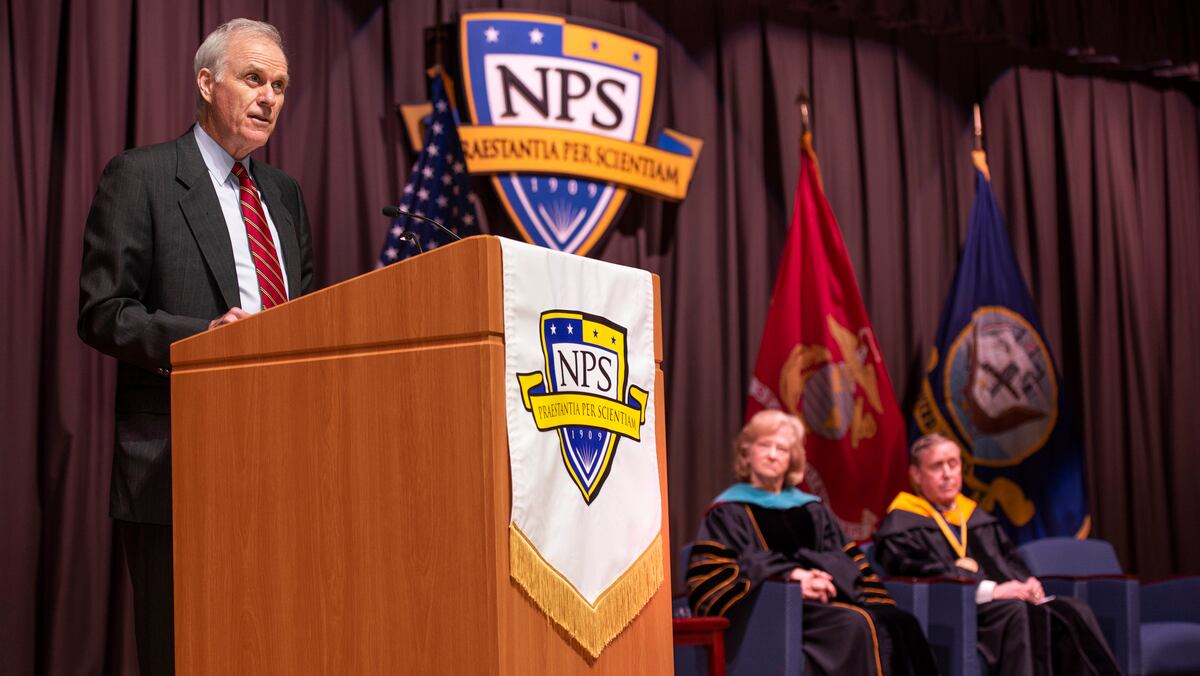Two months into the Navy’s bold plan to revamp higher education throughout the ranks, the service is still searching for a “Chief Learning Officer” to lead the effort.
But that doesn’t mean officials are standing still. Work continues on establishing a key plank of the program — a “Naval Community College” that Secretary of the Navy Richard Spencer wants for sailors and Marines by early 2021.
And although Spencer’s plan seeks to lash together all of the service’s many educational institutions into a larger “Naval University” system — most of which cater to commissioned officers — his initial focus is on enlisted personnel.
“Hiring the chief learning officer for the Navy is in progress as applications are being reviewed and the plan is still to have that position filled by the June time frame,” said Cmdr. Paul Macapagal, spokesman for Under Secretary of the Navy Thomas Modly.
“Meanwhile, the work is ongoing to establish the office and laying the groundwork for the multiple lines of effort.”
RELATED

Macapagal said the top priority remains putting a CLO in place but officials also continue to review the selection of a three-star admiral for a new billet — the “Director of Warfighting Development,” or N7.
That officer will help set policy and manage resources for all Navy educational efforts.
Spencer’s changes are part of a larger series of educational reforms. Officers who entered the service in 2015 are now required to spend time earning advanced degrees before they screen for major command, either at a military institution or an outside university.
For now, Vice Adm. Bob Burke remains in charge of the Navy’s educational systems, but he’s been marked to move up soon. He’s President Donald J. Trump’s pick to become the next vice chief of naval operations.
“I think it’s absolutely the right thing to do and the right time to do it, for a number of different reasons,” he told Navy Times.
He pointed to ongoing Navy experiments in recruiting, training and retaining the nation’s best talent for the officer ranks. Under the old “up or out” system, a premium was placed on operational experience, and education was of secondary importance.
But military leaders have discovered the lasting benefits of higher education, which arms officers with advanced skills learned in the classroom while broadening their minds to tackle an increasingly complex world.
“That’s a large sea change as a lot of communities are challenged to make the time in a career path to do that,” Burke said
Burke thanked Congress for tweaking personnel rules to make it easier to educate future top military leaders but said more innovations are needed inside the Navy.
He said the service must learn to embrace “those opportunities to slow down from the hustle and bustle of fleet operations and start developing strategic and critical thing skills,” especially for officers slated to create war plans.
RELATED

He also thinks the Navy must do more to help its enlisted personnel.
“Our sailors deserve the same opportunity," Burke said. “It’s the great promise that we sell people on when they come to join the Navy — the educational opportunities we provide.”
By creating its own accredited institution of higher education, Burke believes officials will streamline efforts to deliver college credits to sailors already training in the Navy’s schools.
“It simplifies the process and brings a centralized focus giving us strength in numbers and the strength of the Navy behind it,” he said.
To Burke, this new system will loosen the Navy’s reliance on the “good will” and “profit motive” of outside institutions and provide new ways for the service’s existing online credentialing initiative — Navy COOL — to help sailors earn college credits.
“We have a good start on that,” he said. “To expand that into the accreditation world we will take a hard look at how the Air Force did it.”
Founded in 1972, the Community College of the Air Force is the only degree-granting institution of higher education worldwide that’s devoted solely to the enlisted ranks.
Its mission is to award maximum college credit for training that airmen complete while carving out paths for service members to earn two-year degrees in the applied sciences.
But Burke also wants in-residence educational opportunities to expand for enlisted sailors, too.
The service already sends some cyber warfare specialists and crypologic and information technicians to a year-long program at the Naval Postgraduate School. And the Navy’s mass communications specialists receive advanced training at Syracuse University through the Advanced Military Visual Journalism program.
“Those are great and we need a lot more of them,” Burke said. “This will allow us to expand on that idea and make more things things like this real and available to our sailors.”
Mark D. Faram is a former reporter for Navy Times. He was a senior writer covering personnel, cultural and historical issues. A nine-year active duty Navy veteran, Faram served from 1978 to 1987 as a Navy Diver and photographer.




